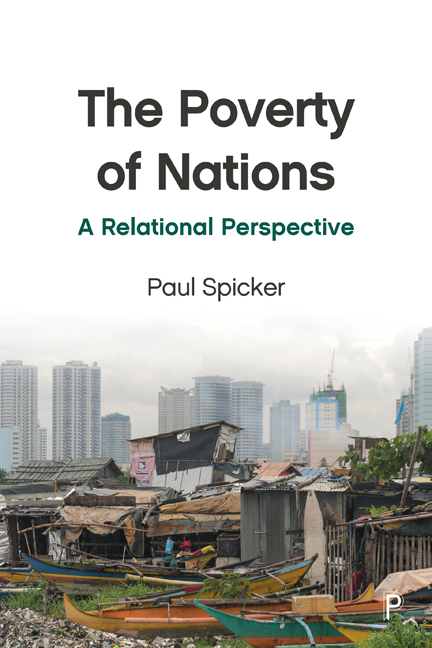Summary
Poverty is complex and multi-faceted, a constellation of issues rather than a single problem. There are more concepts of poverty than it is possible to discuss in this book, but in previous work I have argued that it is possible to see several clusters of meaning – ‘families’ of interrelated concepts. Some concepts of poverty relate to material conditions:
A generally low standard of living, where poverty becomes a struggle to manage in everyday life. The World Bank has described poverty as ‘the inability to attain a minimal standard of living’.
The lack of specific goods and items, such as housing, fuel, or food. For Vic George, this depended on ‘a core of basic necessities as well as a list of other necessities that change over time and place’.
A pattern or ‘web’ of deprivation, where people have multiple deprivations, or they may be frequently deprived, though there may be considerable fluctuations in circumstances.
Some concepts of poverty are based in economic circumstances:
A lack of resources. For Townsend, people were poor because they lacked the resources to have access to the conditions of life that other people have. ‘If they lack or are denied the incomes, or more exactly the resources, including income and assets or goods or services in kind to obtain access to these conditions of life … they are in poverty.’
An ‘economic distance’ from the rest of the population, or a degree of inequality, which means that people are unable to buy the things that others can buy.
Economic class – an economic status, or relationship to production and the labour market, which means that people are consistently likely to be disadvantaged or deprived. Ralph Miliband wrote: ‘The basic fact is that the poor are an integral part of the working class – its poorest and most disadvantaged stratum. … Poverty is a class thing, closely linked to a general situation of class inequality.’
Then there are social relationships:
Poverty understood as dependency on financial support and state benefits.
Poverty as a social class – a set of inferior social roles and statuses, exemplified in the idea of the ‘underclass’.
- Type
- Chapter
- Information
- The Poverty of NationsA Relational Perspective, pp. 15 - 34Publisher: Bristol University PressPrint publication year: 2020



